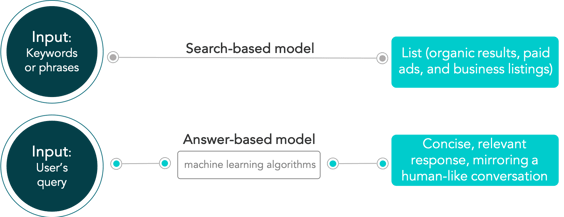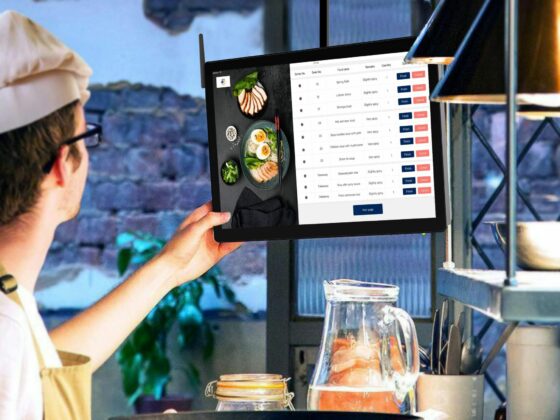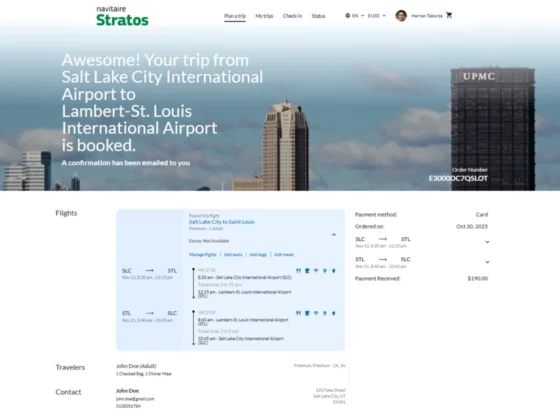AI is already emerging as a game changer in the hospitality industry, reshaping guest experiences and revenue strategies for hoteliers. Shifting to AI-driven platforms like chatbots, visitors expect immediate, relevant information, transforming online interactions. This article explores the impact of these technologies on the booking journey and 2024’s hospitality landscape, based on THN’s Chief Experience Officer Michael J. Goldrich’s latest eBook on hotel marketing trends.
The transition from a search-based to an answer-based approach
Traditionally, platforms like Google require users to scroll through links for information. In the Answer-based model, seen in technology like ChatGPT, AI directly responds to user queries, providing concise information within the same interface.

New ways to access information
The emergence of chatbots and voice assistants signals a fresh era in how information is accessed and interacting with hospitality services. These AI-driven technologies offer users immediate, personalized assistance, streamlining the process of finding relevant information and making bookings. While they present opportunities for hotels to enhance the guest experience and drive direct bookings, they also require careful adaptation of marketing strategies and customer service protocols to ensure seamless integration and maintain brand integrity amidst evolving consumer expectations.
A shift in user’s expectations when it comes to answers
The evolving demands of social media habits and short-form videos have shifted the user’s need for swift, precise, and personalized responses when searching for information on your property’s website. Those potential guests now expect immediate, accurate answers that align precisely with their queries.
To adapt to these evolving expectations, hotels can integrate AI tools like chatbots on their direct channel, focusing on hyper-personalization, optimizing content strategy, and leveraging data.
Content strategy: SGE is the new SEO
While traditional SEO focuses on enhancing website visibility and emphasizes keyword frequency, Search-Generative Experience (SGE) leverages advanced AI and highlights contextual relevance to deliver direct responses to user inquiries.
As discussed above, AI-driven technologies will likely lead to reduced organic website traffic for hotels, prompting the need for a strategic approach to engage and convert visitors effectively. While adopting AI for guest interaction is crucial, your property should also focus on adjusting its website’s content to adapt to SGE. This involves anticipating certain questions your potential guests might have (about amenities, policies, local attractions…) while ensuring accuracy and brand consistency.
Adapting your data strategy
An effective data strategy involves gathering, analyzing, and applying guest information comprehensively, delving into various aspects of their experience from room preferences to dining habits.
A powerful tool could be a preference center, that enables guests to specify their communication preferences, targeting methods, and frequency of contact, which will ultimately enhance your hotel’s marketing effectiveness.

The emergence of hyper-personalization
In the realm of hyper-personalization, AI systems are transforming the guest experience by tailoring interactions based on past behaviors, preferences, and contextual factors like location and time. This customized approach not only boosts guest satisfaction and loyalty, but also strengthens the bond between guests and the brand. As hotels leverage AI-driven hyper-personalization, they’re set to redefine guest service and engagement, driving increased satisfaction and loyalty in the dynamic hospitality industry.
A growing demand for contextual advertising
In response to evolving consumer behavior and preferences, there’s a growing demand for contextual advertising in the hospitality industry. This form of advertising utilizes real-time data and user behavior analysis to deliver highly targeted and relevant ads to potential guests. By leveraging contextual advertising, hotels can engage with users in a more personalized and meaningful way, increasing the effectiveness of their marketing efforts and enhancing the direct channel. As these trends continue to shape the digital landscape, it’s imperative for hotels to embrace these changes and adapt their strategies accordingly to stay competitive and effectively engage with guests in an increasingly digital world.
The hospitality industry is poised for significant change in 2024, largely driven by AI technologies and shifting consumer expectations. Interested in learning more? Download our 2024 Trends eBook to take a deeper look at the emerging technologies.
ABOUT THE AUTHOR
Michael J. Goldrich, THN’s Chief Experience Officer and Founder and Chief Advisor of Vivander Advisors, excels in digital and AI strategies, driving transformative growth. His expertise in generative AI establishes him as a prominent figure in this fast-growing field. He developed a five-step process to guide companies in AI transformation. His expertise in “predictive personalization” has established him as a sought-after consultant and a pivotal figure in shaping the future of customer engagement within the hospitality sector.
Connect with Michael on LinkedIn.







